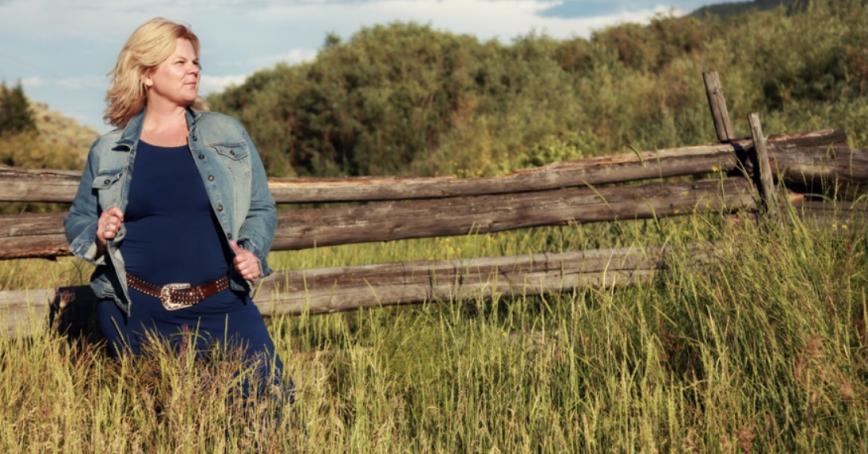Royals Roads, First Nations Technology Council partner for new program
Topics
Featured
Share online

Royal Roads University and the First Nations Technology Council partnered to develop a network technician program for Indigenous learners to fill an employment gap in the industry and create opportunities for students in their home communities.
Robyn Grebliunas, manager of Indigenous Education, Innovation and Development for the First Nations Technology Council, helped develop the curriculum. Grebliunas, who received her Master of Arts in Professional Communication from Royal Roads, has already been approached by Telus, which wants to hire Indigenous tech workers for all 203 First Nations across BC.
She still lives on the unceded lands of the Okanagan and Sylix Nations, near Merritt. She has taught at the post-secondary level and developed curriculum for adult education programs for many years, mainly focused on Indigenous education.
“My passion for Indigenous education is grounded in that journey,” says Grebliunas.
Grebliunas joined the tech council in 2018. She started on the net tech project in 2019, and curriculum development concluded this past March.
The curriculum was challenging, she says, as everything in tech changes quickly.
“A YouTube video you used in building the curriculum might not be available anymore once the course starts, or the link is broken,” she adds.
Zoë MacLeod, associate vice-president of Professional and Continuing Studies at RRU, consulted with the First Nations Technology Council on the development of the program.
"I find it really exciting that we're working collaboratively together as two institutions to try to build programming that suits the needs of these learners and communities, and that we continue to work on our partnership and the relationship together.”
Working at home
The five-week online program, which has 17 students and a waiting list, begins October 4.
“The goal of the course is to see students returning to work as network technicians in their own communities, working in the tech sector, and possibly becoming managers and employers in the tech sector,” says Grebliunas, who is of Métis and Lithuanian heritage and was raised as a guest on the unceded territories of the Nlakapamux and Sylix Nations near Merritt.
She added, “We were hearing the need from Indigenous communities across the province… Every community needs Network Technician support.”
MacLeod helped assemble a funding proposal to submit to the provincial government for the program, based on labour market needs. The collaboration between RRU and the technology council received funding from the Ministry of Advanced Education and Skills Training in December 2019. That funding will enable Indigenous students to gain industry-recognized skills for a sector that had 1,500 unfilled job openings between 2016 and 2021.
“We are really both working together to support the needs of Indigenous communities and learners,” MacLeod says of the partnership.
“This work is really important to the future of our country and our province, and helping to build capacity within First Nations communities so everyone can thrive in society,” she adds.
An Indigenous curriculum
“We Indigenized and de-colonized the curriculum,” Grebliunas says. “We look at, ‘is this curriculum built on only Western ways or is it built in universal design and open to all audiences?'”
Cultural adaptations have also been made to the curriculum. The course will open with a traditional circle and feature a gathering time at the course midpoint, then final celebration on the last day.
“We use only strength-based language and everything we do, from the curriculum to the rubrics and the syllabus to the way we deliver verbally, we embed our curriculum in values, and eliminate colonial wording or perspectives. We really look at local protocols when we're delivering these experiences.”
Her educational philosophy is rooted in traditional learning — where the teacher and the learner share roles. That is incorporated in the net tech course as well.
“Students can lead, and students bring their knowledge to the experience. We don't just lecture or have hierarchies in our classroom, where the instructor knows all. The instructors are there to facilitate and guide the learning.”
The course will be taught by Daryl Silva of the First Nations Technology Council.
“This particular course will prepare graduates for entry level network technician work,” Grebliunas says.
“They will be graduating from this course with a good list of credentials,” and be qualified for work in various roles, from technical support specialist to associate network engineer or data support technician.
The long-term goal is to grow the pilot, adding more advanced courses and practicum opportunities.
“There would absolutely be potential to build a second course at the top level,” Grebliunas says.
The next delivery for the course is scheduled for February.
Grebliunas says working with RRU and the other partners has been rewarding.
“It's a great partnership and RRU is an amazing ally of Indigenous education.”